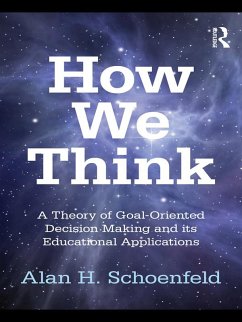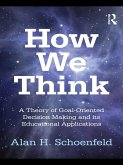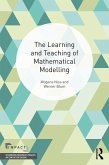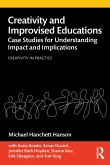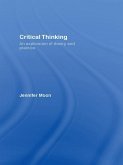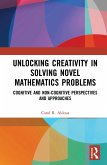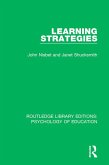Dieser Download kann aus rechtlichen Gründen nur mit Rechnungsadresse in A, B, BG, CY, CZ, D, DK, EW, E, FIN, F, GR, HR, H, IRL, I, LT, L, LR, M, NL, PL, P, R, S, SLO, SK ausgeliefert werden.
"How We Think is an important resource for mathematics education, as well as the decision making sciences...The book is highly recommended to anyone interested in self analyzing teaching practice, researching teacher practices, building a program of research, or simply interested in how we think. The moderate length of the book also facilitates it being accessible for semester long graduate seminars. Last but not least the appendices contain a wealth of real data with notes and URL's for those interested in learning fine grained analysis of teaching data."-Journal for Research in Mathematics Education
"In-the-moment decision making is perhaps the most central activity of teaching; it is also one of the most elusive teaching activities to study. How We Think presents an approach to modeling in-the-moment decision making as a function of the teacher's goals, orientations, and resources, and invites the educational community to explore the use of this model as a tool for understanding and improving teaching. The product of over a decade of scholarship, it is a wonderful example of theory building through careful, detailed empirical analysis."--Hilda Borko, Professor of Education, Stanford University
"Alan H. Schoenfeld presents a general scheme for analyzing a person's activity in a dynamic environment by which he frames explanatory accounts of classroom mathematics teaching. There is much here that contributes to understanding important aspects of teaching and that shows how standard assumptions of psychological choice theory can be modified and extended to provide explanations of teaching."--James Greeno, Visiting Professor, School of Education, University of Pittsburgh
"Reading this book is a must for members of the mathematics education community, not only because of the standing of its author and his writing style, but also because of the issue it addresses which is at the core of today's agenda: mathematics teaching and the need for theoretical frameworks to study it."-Abraham Arcavi, ZDM: The International Journal on Mathematics Education

